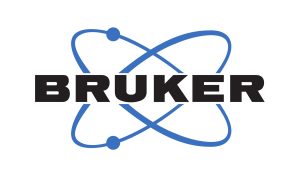Spatial biology meets mass spectrometry
Rapid technological advances have enabled progressively sophisticated and robust genomic, transcriptomic, proteomic and other omic analyses. These advances have redefined spatial biology capabilities in microenvironments by tying together transcriptome relevant protein expression information with glycan and metabolite imaging from the same tissue section. Matrix-assisted laser desorption/ionization (MALDI) Imaging combines the sensitivity and selectivity of mass spectrometry with spatial analysis to provide a new dimension for biochemical analyses. In this panel discussion, we will focus on the practical application of mass spectrometry in the context of spatial biology, review Bruker’s solutions, which have enabled technological advances, as well as discussing what the future holds for this emerging field.
What will you learn?
- An introduction to spatial biology and the role mass spectrometry has played
- What mass spectrometry adds to spatial biology research
- How MALDI Imaging implementation can aid cancer research
- The future of MALDI Imaging and how machine learning/AI opens up more possibilities
Who may this interest?
- Current spatial biology users (for example Akoya, Nanostring, 10x)
- Cancer, neuro and disease-based researchers
- Those interested in a systems biology approach to understanding protein and metabolite/lipid interactions
Speakers

Jared K. Burks, PhD
Professor and Co-Director of the Flow Cytometry and Cellular Imaging Core Facility
The University of Texas MD Anderson Cancer Center (TX, USA)
Jared K. Burks is a Professor and Co-Director of the Flow Cytometry and Cellular Imaging Core Facility at MD Anderson Cancer Center. He has extensive experience in protein folding, trafficking, protein engagement with membranes and imaging methodologies. He is an expert in imaging technologies, including mass cytometry, CyTOF and high plex imaging. His research focuses on understanding the functional cellular interactions that occur in unique spatial niches. At the Flow Cytometry and Cellular Imaging Core Facility at MD Anderson, he is particularly interested in using emerging technologies to answer critical questions in cutting-edge research as well as collaborating with researchers to produce outstanding scientific discoveries.

Gregory Hamm
Director, Integrated Imaging Sciences, Imaging & Data Analytics
AstraZeneca (Cambridge, UK)
Gregory Hamm, PhD, is a Director at AstraZeneca, specializing in Mass Spectrometry Imaging (MSI) and other advanced imaging technologies. With a PhD in physics and chemistry from Paul Verlaine University of Metz (Metz, France), he has over a decade of experience in pharmaceutical science and drug development. His work at ImaBiotech (Loos, France) from 2010–2016 resulted in patented MSI quantification methods. Since 2016, at AstraZeneca, he has contributed to safety and efficacy studies in respiratory, immunology and oncology using advanced molecular imaging technologies. He’s authored over 50 peer-reviewed papers and is an advocate for MSI in the imaging community. He’s also actively involved in multimodal imaging and digital pathology integration to enhance project support and communication within the field.

Evan Keller
Professor of Urology and Pathology
University of Michigan (MI, USA)
Dr Keller is the Richard and Susan Rogel Professor of Oncology and serves as Director of the Single Cell Spatial Analysis Program, Director of Research Core Office in the Office of Vice President of Research, and Associate Director of the Rogel Cancer Center Shared Resources. Dr Keller obtained a Doctor of Veterinary Medicine and Masters of Preventive Veterinary Medicine/Epidemiology degrees from the University of California (CA, USA), Davis and a doctorate in Developmental Biology from the University of Wisconsin–Madison (WI, USA). He is Board Certified in the American College of Veterinary Internal Medicine (Oncology). Dr Keller is a Professor of Urology and Pathology at the University of Michigan (MI, USA). Dr Keller has published more than 250 scientific publications. Dr Keller’s research extends from basic through clinical studies with a focus on crosstalk between tumor and its microenvironment. He has worked with multiple single cell and spatial platforms including both transcript and protein based.

